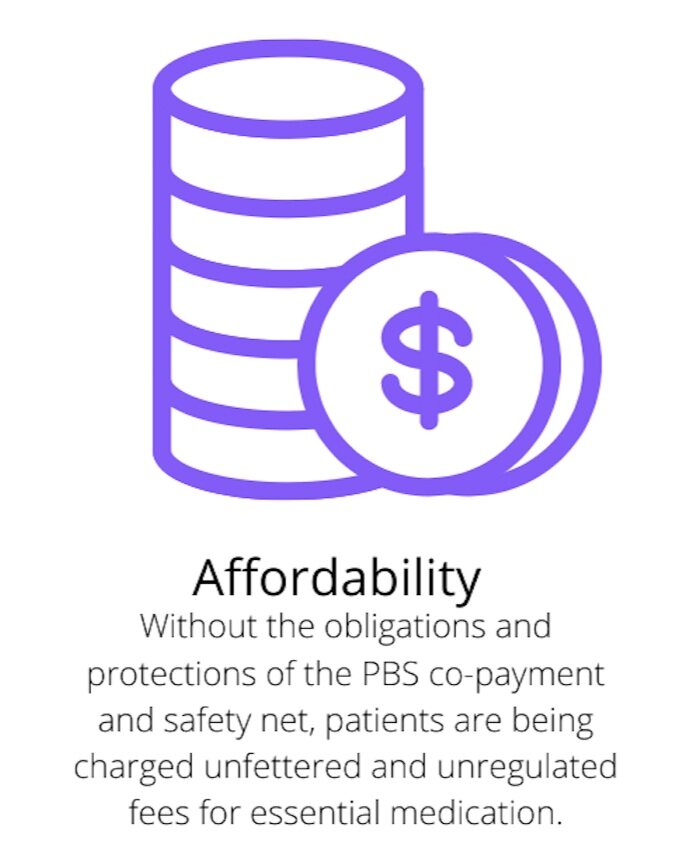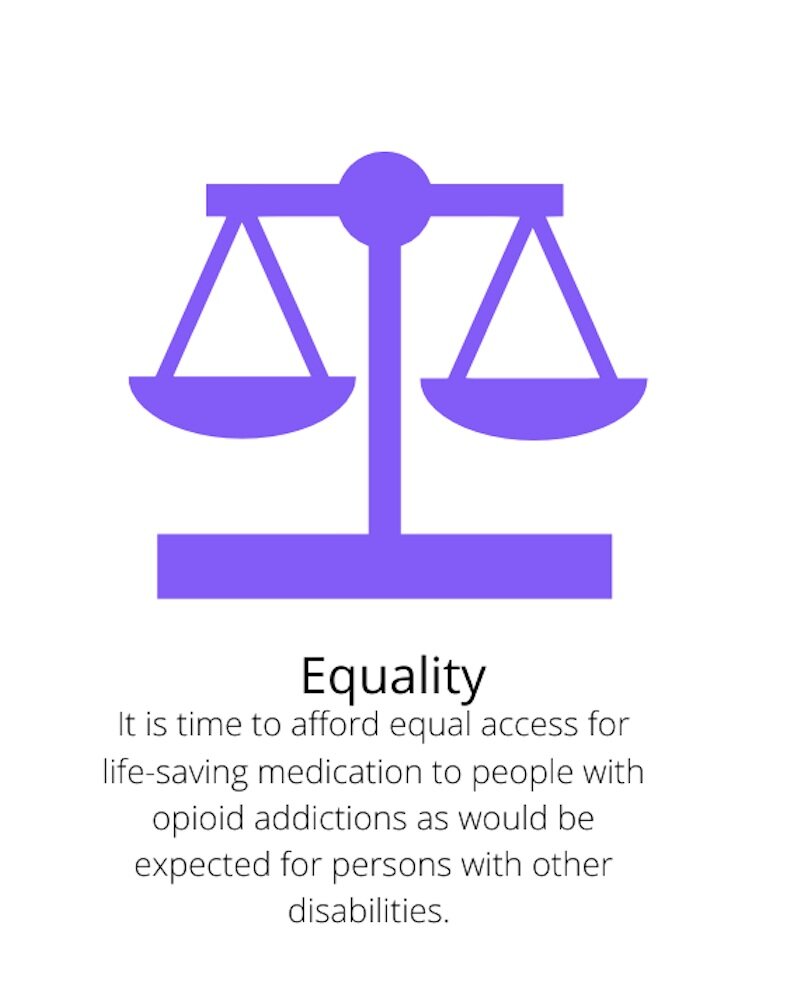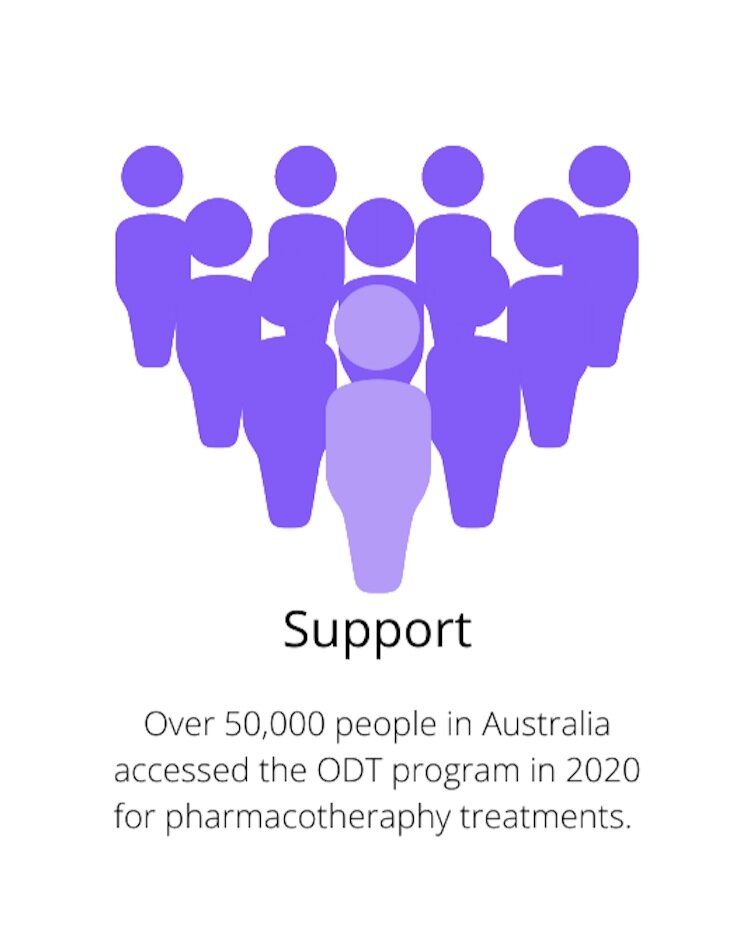
Opioid Dependency Treatment Program Reform
The Opiate Dependency Treatment (ODT) Program:
Removes the normal operations of the PBS co-payment;
Removes a patient’s access to the PBS safety net; and
Allows for uncapped administration fees for the dispensing of the nominated medicines under the program.
The Senate Standing Committee on Delegated Legislation has issued its findings on the lawfulness of the ODTP, concluding that:
“…a challenge to the validity of the current special arrangement on the basis that it should have been registered as a legislative instrument may result in a court finding the actions undertaken under the current arrangement to be unlawful.”
Some 50,000 patients rely on the PBS to help them manage their chronic disease of opioid addiction. The majority of these patients are managing addiction as a result of government-subsidised pain medications.
Read our media statement here.
The impacts of opioid dependence range from social consequences which can effect personal relationships, employment, housing and education to medical and mental health problems or the loss of life. Treatments options include pharmacotherapy which mitigates opioid addiction through an oral-ingested longer-lasting opioid. Typical pharmacotherapy treatments in Australia, which were accessed by over 53,000 people in 2020, include methadone, buprenophine and buprenophine-naloxone. People might utilise ODT programs for treatment of the dependence of both illicit and pharmaceutical drugs including heroin, morphine and oxycodone.
In removing both the obligations and protections of the PBS co-payment and safety net system for access to medicines under the ODT program, the Department of Health has established a program that can charge unfettered and unregulated fees for the dispensing of an essential medicine to a patient.
Only PBS-subsidised medicines made available via this program have both these protections removed and unregulated private fees applied.




Better Access Australia believes the time has come to end the arguments about cost-shifting with the states and territories and put the patient at the centre of the system.
Want to know more?
Get the facts
The Australian Institute of Health and Welfare reports that:
The median age for pharmacotherapy treatments is 44 with every 2 in 3 users being male;
People accessing the program are most commonly seeking treatment for heroin dependence;
Methadone remains the most frequently prescribed pharmacotherapy treatment;
The recent adoption of buprenorphine long acting injections provides an ability to reduce the frequency of visits to dosing sites from daily to weekly or monthly.
Further investigate the National Opioid Pharmacotherapy Statistics Annual Data collection.
Know the stats
On causes of death in 2018, the Australian Bureau of Statistics (ABS) notes that:
Over three deaths per day were the result of opioid use with opioids present in two-thirds of all registered drug-induced deaths;
Pharmaceutical opioids were present in 70% of all deaths related to opioid use;
The overwhelming majority of opioid-induced deaths (87.5%) occur between the ages of 25-64. The highest proportion of these deaths (30.4%) occur between the ages of 35-44;
The average death of someone who had an opioid related overdose was 34.9 years premature.
‘Tackling substance abuse epidemic in a pandemic’
The coronavirus pandemic has increased rates of substance use. Whilst there has been political acknowledgement of the dire consequences for mental health, less attention has been paid towards managing and mitigating problematic substance use. Dr Lesley Russell of the Menzies Centre at the University of Sydney argues for the involvement of a ‘No Wrong Door’ approach to manage issues of mental health and substance use. Highlighting the impacts of the pandemic and associated lockdowns on the uptake of problem substance use whilst reducing access to methods of treatment, rehabilitation and other supportive mechanisms.
Read Dr Russell’s article here.
Find research on the ‘No Wrong Door’ approach to health care here.
Further information:
“Better Access Australia considers that the Department of Health’s ODT Program is discriminatory as it removes the rights of patients on the basis of their disability – opioid dependency and their medical record.”
— Better Access Australia
“HRA is requesting the PBAC make a recommendation to the Government to dual-list buprenorphine, buprenorphine + naloxone and methadone under s85 and s100 of the PBS.”
— Harm Reduction Australia
“Access to treatment should be fair and equitable as it would be for other chronic health conditions”
— Alcohol and Drug Foundation
Read ADF’s position on the benefits of medically assisted treatment for opioid dependency.

